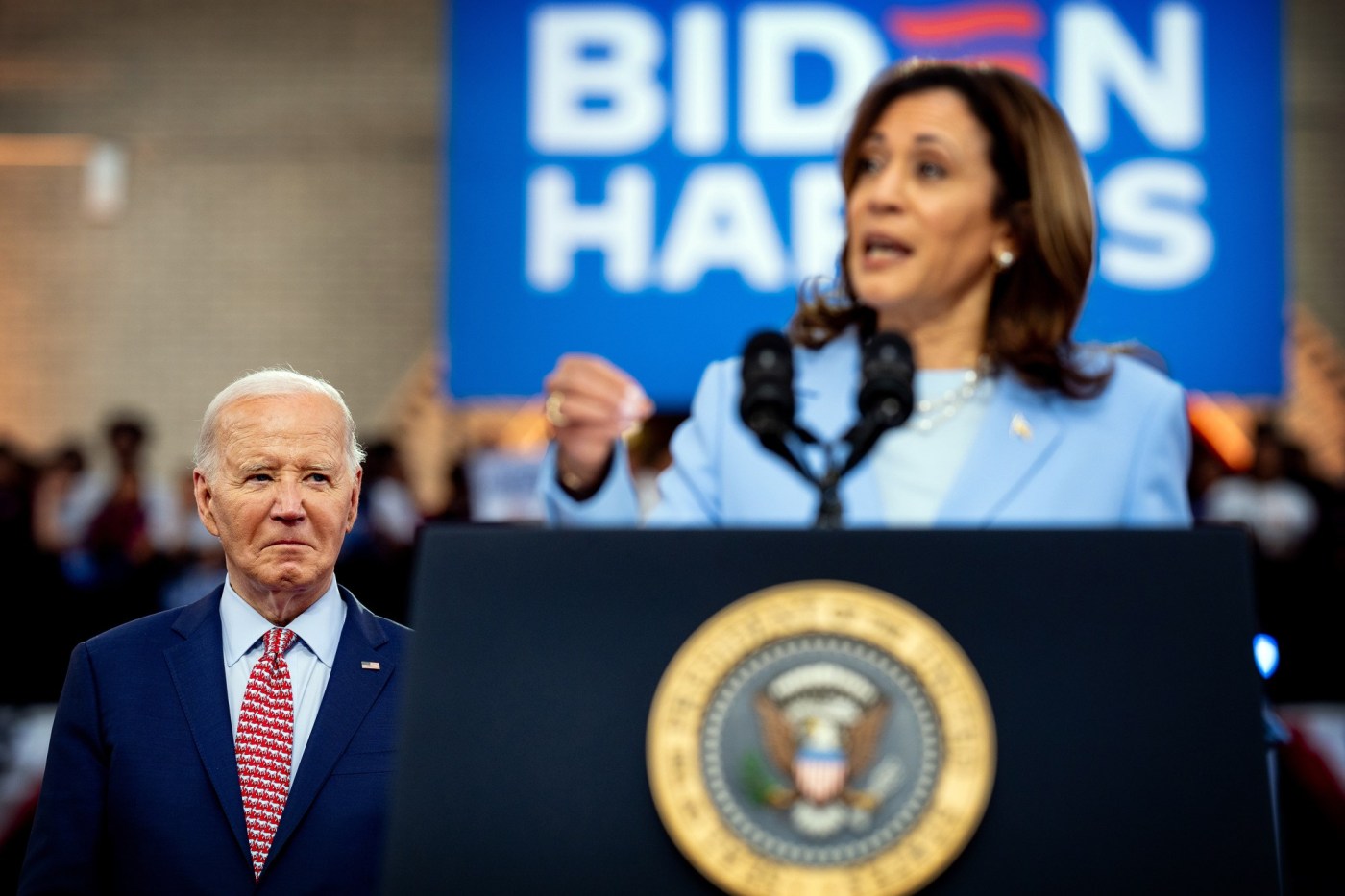
Schoen: How Harris changes the presidential election
If presidential elections are referenda on the incumbent, the race between President Biden and former President Donald Trump had been anything but in recent weeks, as Democratic infighting relegated policy discussions to the backburner.
However, now that Biden has stepped aside from the top of the ticket and Democrats effectively appointed Vice President Kamala Harris as the nominee, where does the race stand now?
First, after three weeks of Democratic officials and donors publicly airing unprecedented levels of grievance towards their president, the speed with which they rallied behind Harris suggests their hope that nominating her will help close the enthusiasm gap with the GOP.
The shot in the arm that Harris provides is likely behind her improvement vis-à-vis Biden in early polling against Trump.
Indeed, while it will take time for polls to fully capture Harris’ impact, thus far, it seems that Harris is polling ahead of the incumbent president, albeit still trailing Trump.
Among registered voters, Trump leads Harris by 3-points (49% to 46%) in a recent CNN/SSRS poll, a 3-point improvement from Biden’s numbers in the same poll conducted earlier this month.
In that same vein, CNN’s poll shows that Harris’ gains are with groups critical to the Democratic Party. Harris polled 9-points higher with independents, 8-points higher with people of color, and 6-points higher with both voters under 35 and women, compared to Biden’s numbers from late June.
Pointing to the closing enthusiasm gap, when asked whether their vote was for Harris or against Trump, Harris voters were split, 50% each. In June, less than 4-in-10 (37%) Biden voters said their vote was for Biden, while nearly two-thirds (63%) said they were voting against Trump.
To be sure, Democrats should not feel overconfident. Of the five public polls conducted entirely after Biden’s withdrawal, Trump leads in four of them by an average of 2-points, per RealClearPolitics.
Moreover, in the swing states that will decide this election, Trump leads Harris in four of the five – Arizona (+5), Georgia and Pennsylvania (+2), Michigan (+1) – with Wisconsin tied at 47% apiece, according to Emerson polling.
Much like the CNN poll, Emerson underscores Democrats’ improving chances with Harris atop the ticket. She polls better than Biden by 5-points in Georgia, 4-points in Arizona and Wisconsin, and 3-points in Michigan and Pennsylvania.
If Harris can sustain this momentum, her presence atop the ticket may improve Democrats’ chances of winning at least one of the chambers of Congress, even if they lose the White House.
Put another way, Harris’ early poll numbers clearly suggest that she has helped Democrats recover some of the support they lost amid the chaos of the past month.
Harris’ presence also changes how both sides will likely approach the final three months before election day. In many ways, it will now be a “turnout election” where whichever side can better mobilize its supporters has an inside track.
While turning out supporters is no problem for Trump’s loyal base, it is an open question whether Harris can carry her early momentum through the DNC and into the fall. The last time she was on the stage as a candidate – the 2020 primary – her campaign flamed out before a single vote had even been cast.
Further, Harris is considerably to the political left of Biden. Her 2019 GovTrack Senate report card ranked her as the “most liberal” senator. It is possible that her positions on issues like immigration, the Green New Deal, and healthcare are too radical for moderate voters who may stay home or vote for Trump.
Interestingly, Harris’ record as a prosecutor may both alienate progressives and animate conservatives. Progressives will criticize her “punitive-first approach” as Tinisch Hollins, director of Californians for Safety and Justice put it, citing her history of seeking tough sentences, defending questionable convictions, and opposing legislation requiring investigations into police shootings.
On the other hand, the Trump campaign is already painting Harris as a “progressive DA” who was too lenient during her term as San Francisco DA and then California AG, contributing to surging crime in California and San Francisco, despite her leaving the AG’s office in 2017.
To that end, Harris is no outsider. With issues once again taking centerstage, she will now become the face of the Biden administration’s record.
As such, Harris will have to grapple with voters’ angst over key issues such as the economy, immigration, and abortion. The first two – economy and immigration – will present considerable obstacles for Harris, just as they had for Biden.
Immediately prior to the Republican convention, Trump led Biden by 11-points (44% to 34%) on who voters trusted to handle inflation, and 10-points (45% to 35%) on trust to handle the overall economy, per ABC News polling.
Harris now has to make her case for the administration’s handling of the economy and inflation, which remains roughly 20% above when Biden and Harris took office.
On immigration, Harris has a unique problem. Not only do voters generally trust Trump more on the issue – he led Biden by 14-points in the ABC poll – but Harris may struggle to shake perceptions that she is partly to blame for the migrant crisis.
As Biden’s handpicked “border czar” Harris has been widely criticized for her approach to immigration, and her past remark that illegally crossing the border should be a civil – rather than criminal – offense may not sit well with moderate voters in swing states.
Republicans are already preparing ads attacking Harris for her role as border czar. And her bizarre response to a question on whether she’d visited the border, telling Lester Holt, “And I haven’t been to Europe…I don’t understand the point that you’re making” will likely feature prominently as an example of her general inexperience.
The one key issue where Harris is a marked improvement from Biden is abortion. She has been the administration’s point person on this ever since the 2022 Dobbs decision, and the issue figures to be a centerpiece in her campaign.
Given the unpopularity of anti-abortion measures even in deep-red states like Kansas, it is entirely possible that Harris drives a surge in support from younger voters and suburban women.
Taken together, Harris likely provides an advantage in enthusiasm and with women, progressive, and younger voters who had soured on Biden. On the flip side, her inexperience and left-leaning positions may in turn alienate moderates in key swing states.
Ultimately, replacing Biden with Harris can best be described as “resetting” the presidential race to the day before the debate set off a national conversation about Biden’s age. As both campaigns refocus on the issues that will determine the election, it figures to be the extremely close contest many originally predicted.
Douglas Schoen is a longtime Democratic political consultant.

